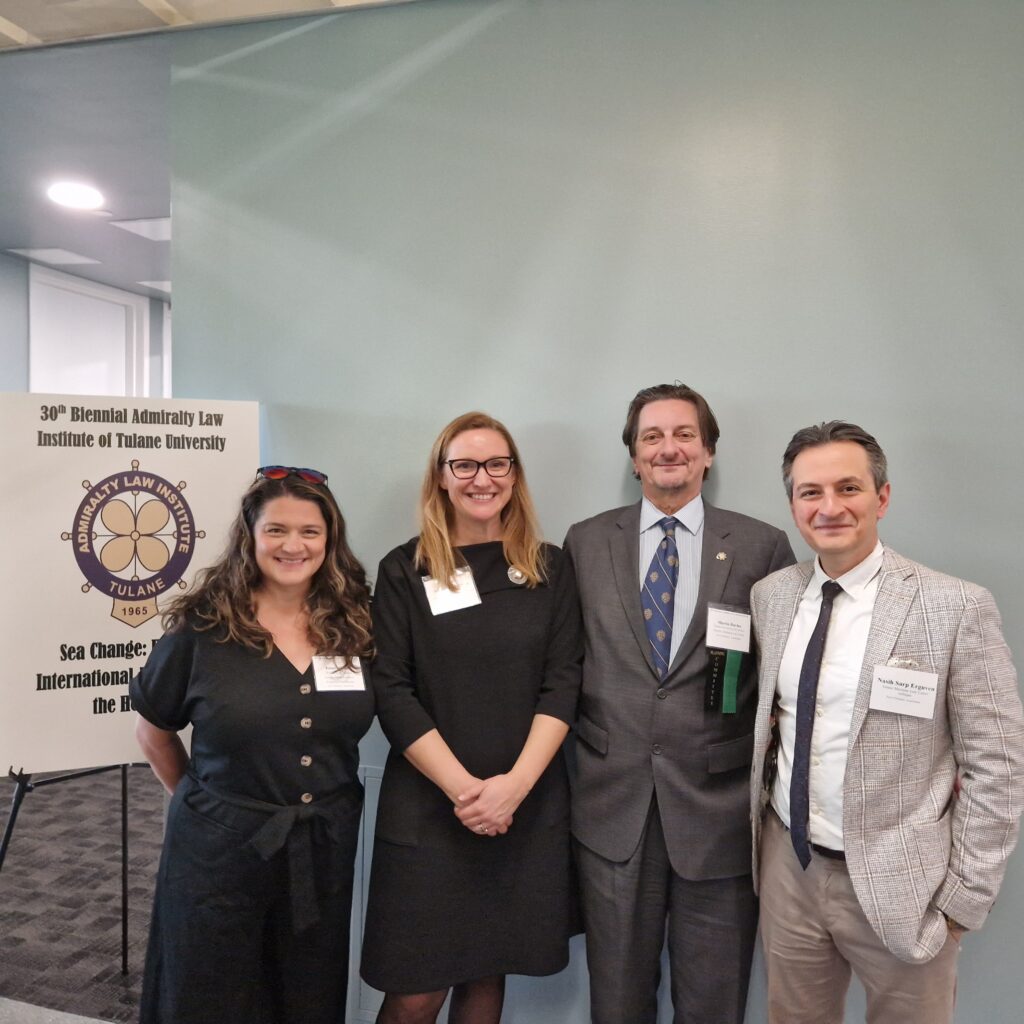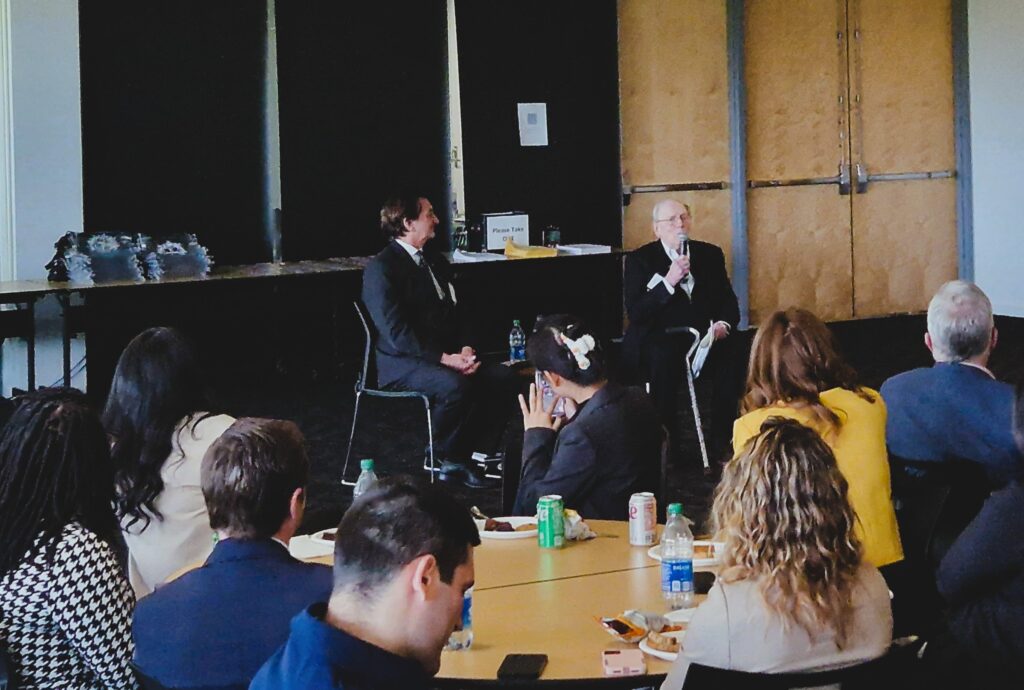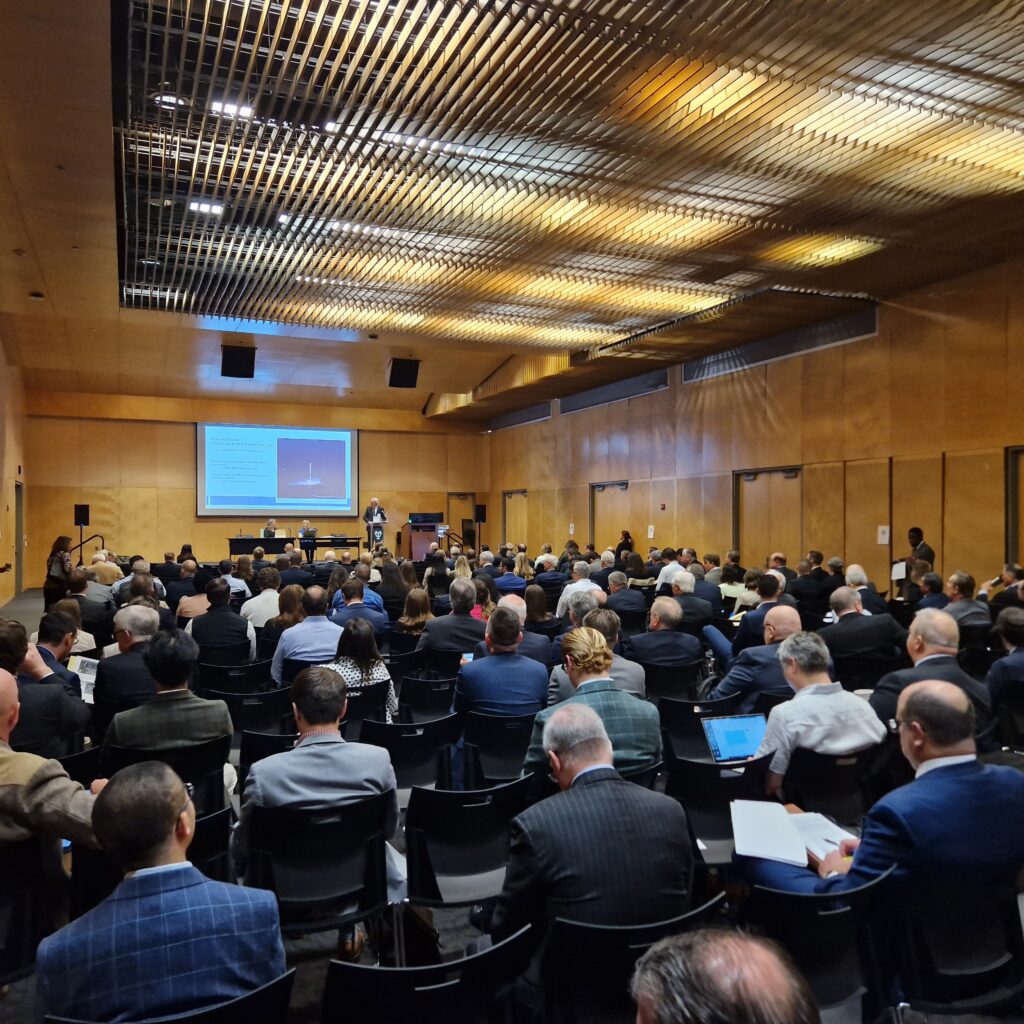The prestigious 30th Biennial Admiralty Law Institute successfully took place from March 20-22, 2024, traditionally hosted by the illustrious Tulane Law School. This year’s theme, “Sea Change: U.S. and International Developments on the Horizon,” aptly reflected the forward-looking discourse and the wave of legal and regulatory changes impacting maritime law of the USA and on a global scale.
Gathering over 300 professionals including lawyers, shipping and marine insurance industry representatives, and academics from across the United States and beyond, the event served as a beacon for thought leadership and collaborative discussions on emerging trends in maritime law.
The conference opened with welcoming remarks from John Woods, President of the Admiralty Law Institute and Partner at Clyde & Co, and Sally Brown Richardson, Interim-Dean and A.D. Freeman Professor of Civil Law at Tulane Law School. Their speeches set a compelling tone for the days of in-depth legal explorations that followed.
A Diverse Spectrum of Topics on the Docket
Participants were treated to a rich array of sessions covering the most pressing issues in maritime law today, including:
- The innovative intersection between maritime and space law, responding to the unique challenges faced by commercial spaceflight operators using floating launch and recovery platforms at sea and developing mobile sea-based spaceports.
- Recent advancements and considerations within marine insurance law in the United States.
- A critical review of the current state of U.S. and International Maritime Organization (IMO) safety regulations.
- An authoritative overview of the U.S. pilotage law, anchored by the seminal U.S. Lighthouse Act of 1789.
- Detailed discussions on cruise ship safety and operations, highlighting the continual need for vigilance and regulation.
- An insightful examination of how the U.S. Department of Defense collaborates with maritime sectors to secure safe navigation in conflict zones, including the protocol for issuing maritime alerts and advisories.
- A forward-looking summary of maritime cybersecurity legislation, with special emphasis on the U.S. Coast Guard’s 2024 cybersecurity regulations proposal.
- Discussions on The Poseidon Principles and initiatives for achieving zero carbon emissions in shipping, showcasing the industry’s commitment to environmental sustainability.
- A revisit to the U.S. Oil Pollution Act of 1990, scrutinizing its impact and effectiveness in today’s maritime environment.
- An exploration of jurisdiction, regulatory authority, insurance, and liability issues in maritime zones beyond the 12 nautical mile limit and in outer space, with a specific look at emerging technologies and vessels.
- A panel delving into the roles of Classification Societies, the drive for greener technologies, and the overarching theme of sustainability within maritime operations.
- Insightful discourse on the implications of Artificial Intelligence (AI) in the legal profession, addressing both the opportunities and ethical considerations it brings to the field.
A special session chaired by ALI’s President John Woods and featuring Professor Martin Davies, Director of Tulane Maritime Law Center, was dedicated to the distinguished Professor Robert Force, founder of the Tulane Maritime Law Center, its Director Emeritus, the greatest living writer and professor of maritime law in the United States, who is retiring after 55 years of dedicated service at Tulane Law School. In this session, Professor Force gave a lecture on arbitration of seamen’s personal injury claims.
A Confluence of Expertise
With speaker panels composed of leading experts, including attorneys specialising in admiralty law, distinguished academics, in-house legal counsels, representatives from the U.S. Coast Guard, U.S. Department of Justice, shipping and marine insurance industries and classification societies, judiciary, state agencies and port authorities, pilot associations and other relevant stakeholders in the maritime world, the conference was nothing short of a seminal gathering for those vested in the future of maritime law.
As the 30th Biennial Admiralty Law Institute concluded, participants left equipped with new insights and perspectives, ready to navigate the evolving legal landscapes of the sea and beyond. The event underscored not only the importance of staying at the forefront of legal developments but also the value of community and collaboration in fostering a safer, more sustainable maritime future.
A full list of the conference panels and speakers is available on the official website here: https://web.cvent.com/event/4df2b2ac-c98d-4a18-82e1-105e6f243db0/summary


